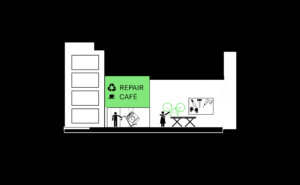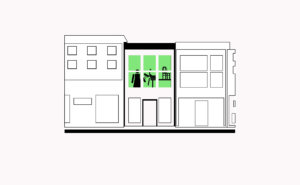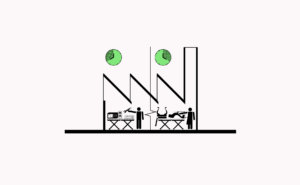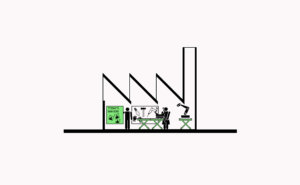
R.10 Place-based Financial Levers
Financial instruments are important mechanisms to improve neighbourhood scale infrastructure and technology, while rendering businesses more compatible with their context.
[Context] Financial levers include incentives, called carrots (tax cuts, low barrier financing opportunities and stimulus funding), and disincentives, referred to as sticks (taxes and fines). Manufacturing businesses can be slow to adapt to new norms, regulations or planning. This is especially the case for issues such as environmental ambitions (such as C02, carbon emissions or flooding issues), business support (improvement of business strategies, training and financing equipment), mobility issues (urban congestion and logistics), commercial opportunities (such as tourism or public exposure) or resource management (processing units or material recovery). Effective place-based financial levers, those focused on a specific area or neighbourhood, can be critical in the transition process to align businesses with a vision or master plan.
[Problem] Financial levers have clear limits if they are neither sufficiently engaging or overly threatening to push businesses to change. If the investment renders little value, changes can result in worse conditions for businesses. Failure can lead to a political backlash making it difficult for planning to be taken seriously and transitions to be implemented in the future.
[Forces] Manufacturers can be quick to adapt to new cost saving technology or tools that improve productivity. By contrast, they are often apprehensive to change established habits even if the costs or gains are insignificant. A number of environmental policies can have tragic impact on manufacturers. This can include low-carbon mobility, congestion charging and ‘improvements’ to public space (resulting in more difficult conditions for logistics). The unintended consequences of such policy can include reducing business competitiveness or costing unnecessary time completing paperwork. Blanket taxation, like car parking or taxation on technology, can be significant enough incentives to simply push businesses out of cities into areas where taxation conditions are more attractive. This is particularly concerning where metropolitan level tax regulation does not align with national scale legislation and encourages businesses to relocate over (local or regional) political boundaries to gain benefits.
[Solution] Use public financial levers as tools to align concerned actors and local businesses in order to enact changes to technology, production processes, land use or changes in the use of public space. Financial levers are best implemented within the framework of an economic or spatial vision, such as C.1 Microzoning. This may require financial incentives to deliver results if the market is not prepared to invest in development. A R.3 Curator or area manager can be assigned to mediate between the vision and the businesses’ needs, providing feedback on which financial levers have successful results. Through R.1 Making Making Visible, a message can be communicated to a general public to show ambitions and the consequences of the vision. Business incentives such as carrots (funding) and sticks (taxation) can be used to negotiate. For example, financing (loans) could be made available for businesses to change logistics habits by purchasing a small electric vehicle to help R.8 Moving Things Efficiently. Public funding can be used for companies to invest in innovation through R.11 Incentives for Research & Development or to create P.1 Productive Rooftops. Tax breaks could be offered to provide P.7 Spaces for Development & Education or P.6 Re-use & Repair Centres. Taxes and fines can be levered to improve the use of land and avoid unnecessary blight through P.4 Meanwhile spaces and Transitional Uses, N.2 Re-use of Material & Energy Flows and for R.6 Sustainable Product Cycles. Likewise, in neighbourhoods undergoing rapid gentrification, increasing rents could be compensated through local land taxes to prop up foundational forms of manufacturing to increase R.4 Availability of Diverse Jobs.
[Contribution] Add contributions here.







